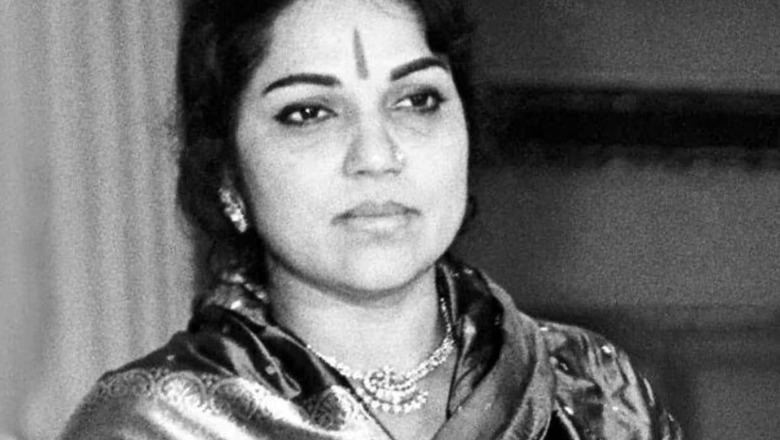
views
Sivaji Ganesan is hailed as one of the greatest Indian actors of all time. He was a prominent face in the Tamil industry and was known for his versatility. Sivaji Ganesan ruled the silver screens with his outstanding performances. His versatility and different script choices won him the love of the audience. He became a source of inspiration for the next generation of actors. In his illustrative career of five decades, he has worked in more than 288 movies across various industries like Tamil, Telugu, Kannada, Malayalam and Hindi. Reportedly, he is the only Tamil actor to have played the lead role in over 250 movies. So, when a man of his stature once mentioned that he admires an actress, it says a lot about the talented actress. Do you know which actress we are talking about?
She is none other than P Bhanumathi Ramakrishna aka Bhanumathi, who was the leading actress in the 1950s. They have worked together in movies like Rangoon Radha and Rani Lalithangi. He mentioned in his autobiography, “I am honoured to have acted in these films with a great actress like Banumathi. You never see an actress like Banumathi, she is very energetic, and acting with her is a new experience for me.”
Bhanumathi marked her debut in the acting world in 1939 and has worked in over 100 movies in the Tamil and Telugu movie industries. She was a powerhouse of talent and was referred to as Ashtavadhani as she was a writer, actor, director, producer, singer, music director, editor and studio owner. Such was her popularity in the entertainment industry that she was regarded as the first female superstar of Telugu industry.
With one movie after another, she became the go-to actress for directors and other actors as well. She was also quite busy and every actor wanted to collaborate with her on a movie. This highest-paid actress of that era is also credited with being the first female director of a Telugu movie after she directed, titled Chandirani, in 1953. For her immense contributions to Indian cinema, she was awarded the Padma Shri in 1966 and Padma Bhushan in 2001.



















Comments
0 comment